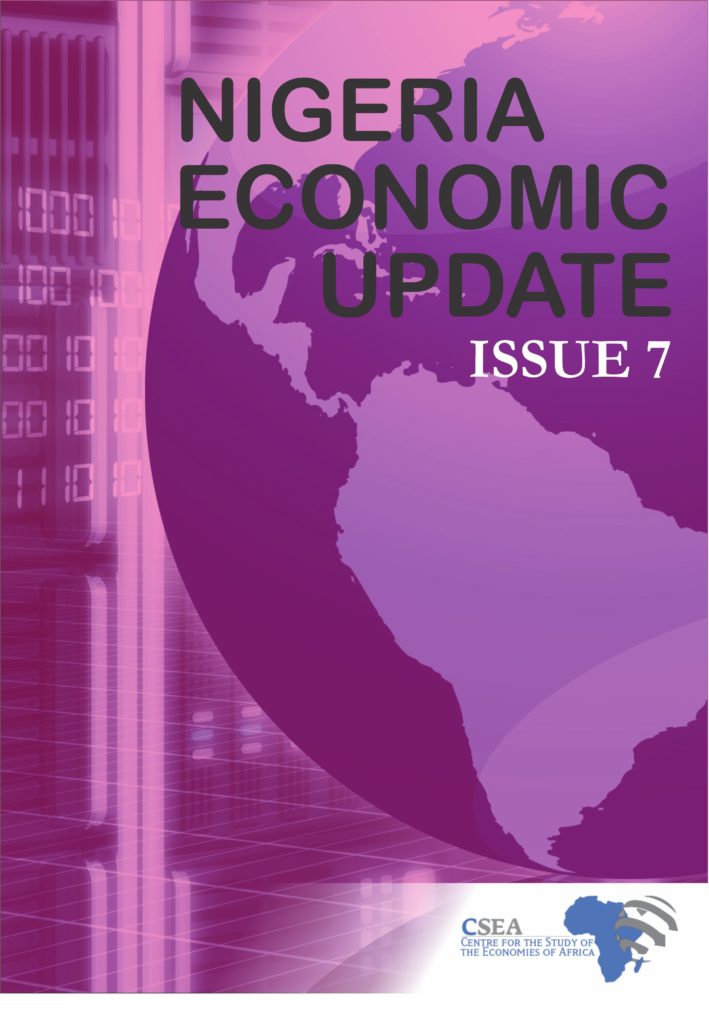Month-on-Month analysis of food prices show that average prices of selected food items
reduced from December 2017 to January 2018. Precisely, total average month-on-month price
decreased from 2.48 percent to 1.19 percent, with reductions in unit prices of items such as
eggs, chicken, beef, rice, fish, and palm oil among others. Food prices which remains largely
volatile in the short term, may have reduced in the review period due to a slight fall in consumer
demand following the end of the festive period. Looking forward, the decline in food prices may
be short-lived in the absence of yield-enhancing investments that can sustain food
production/supply. Hence, the government should promote policies that alleviate the credit constraints to yield-enhancing investment in the private sector.
Macroeconomic Report & Economic Updates

March 10, 2018
Nigeria Economic Update (Issue 7)
Month-on-Month analysis of food prices show that average prices of selected food items reduced from December 2017 to January 2018. Precisely, total average month-on-month price decreased from 2.48 percent to 1.19 percent, with reductions in unit prices of items such as eggs, chicken, beef, rice, fish, and palm oil among others. Food prices which remains […]
Read →
Related
Nigeria Economic Update (Issue 49)
Nigerias
Petroleum Products Imports statistics show a gradual reduction in the volume
and value of petroleum imports (PMS, AGO, HHK) between May and September 2016. Specifically,
volume of imports declined by 34.1 percent for PMS, 37.6 percent for AGO, and
60.3 percent for HHK in the period.The significant decline in
imports in the reporting periods may be as a result of persistent forex
scarcity issues faced by importers. On account of stagnation in
domestic production of refined petroleum products, continuous
decline in oil imports may create a demand gap with upward pressure on gasoline
prices in the economy.
Nigeria Economic Update (Issue 27)
The
Naira strengthened against the dollar in the review week. Specifically, the
Naira appreciated by 2.7 percent to N355/$ (parallel market rate) on June 17, 2016,
following the release of the flexible FOREX policy guidelines by the CBN on
June 15, 2016. The new policy effectively adopts a single market structure
hosted at the autonomous/inter-bank market. The inter-bank trading scheduled to
commence on June 20, 2016 will be market-determined, officially eliminating the
N197/$ peg. To ensure foreign exchange liquidity, primary market dealers have
been introduced while the CBN will participate in the market through periodic interventions.
